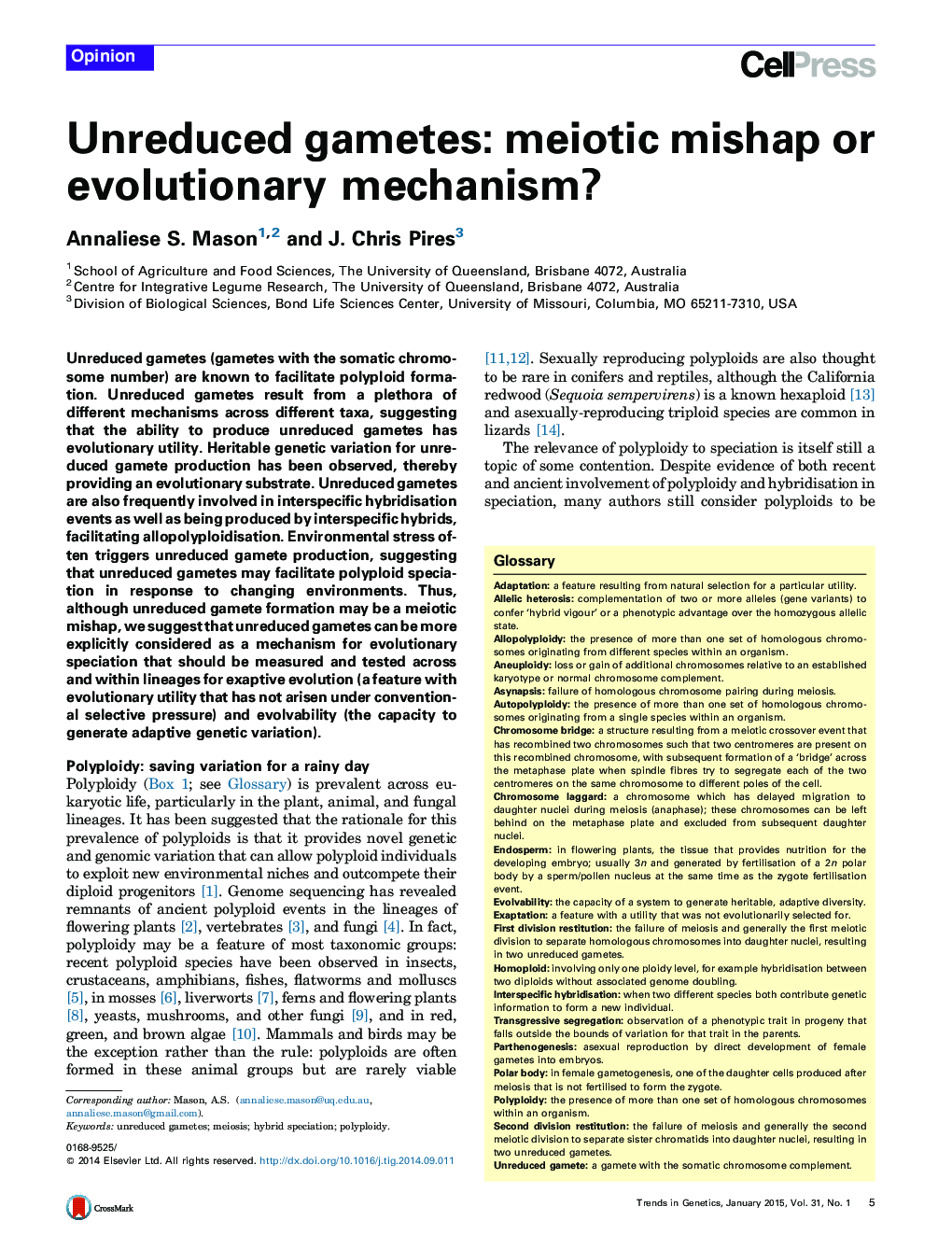| Article ID | Journal | Published Year | Pages | File Type |
|---|---|---|---|---|
| 2824714 | Trends in Genetics | 2015 | 6 Pages |
•The ability to produce unreduced gametes facilitates polyploid speciation.•Unreduced gamete production is under genetic control.•Stress and interspecific hybridisation increase unreduced gamete production.•Unreduced gamete production may comprise an evolutionary mechanism for speciation.
Unreduced gametes (gametes with the somatic chromosome number) are known to facilitate polyploid formation. Unreduced gametes result from a plethora of different mechanisms across different taxa, suggesting that the ability to produce unreduced gametes has evolutionary utility. Heritable genetic variation for unreduced gamete production has been observed, thereby providing an evolutionary substrate. Unreduced gametes are also frequently involved in interspecific hybridisation events as well as being produced by interspecific hybrids, facilitating allopolyploidisation. Environmental stress often triggers unreduced gamete production, suggesting that unreduced gametes may facilitate polyploid speciation in response to changing environments. Thus, although unreduced gamete formation may be a meiotic mishap, we suggest that unreduced gametes can be more explicitly considered as a mechanism for evolutionary speciation that should be measured and tested across and within lineages for exaptive evolution (a feature with evolutionary utility that has not arisen under conventional selective pressure) and evolvability (the capacity to generate adaptive genetic variation).
